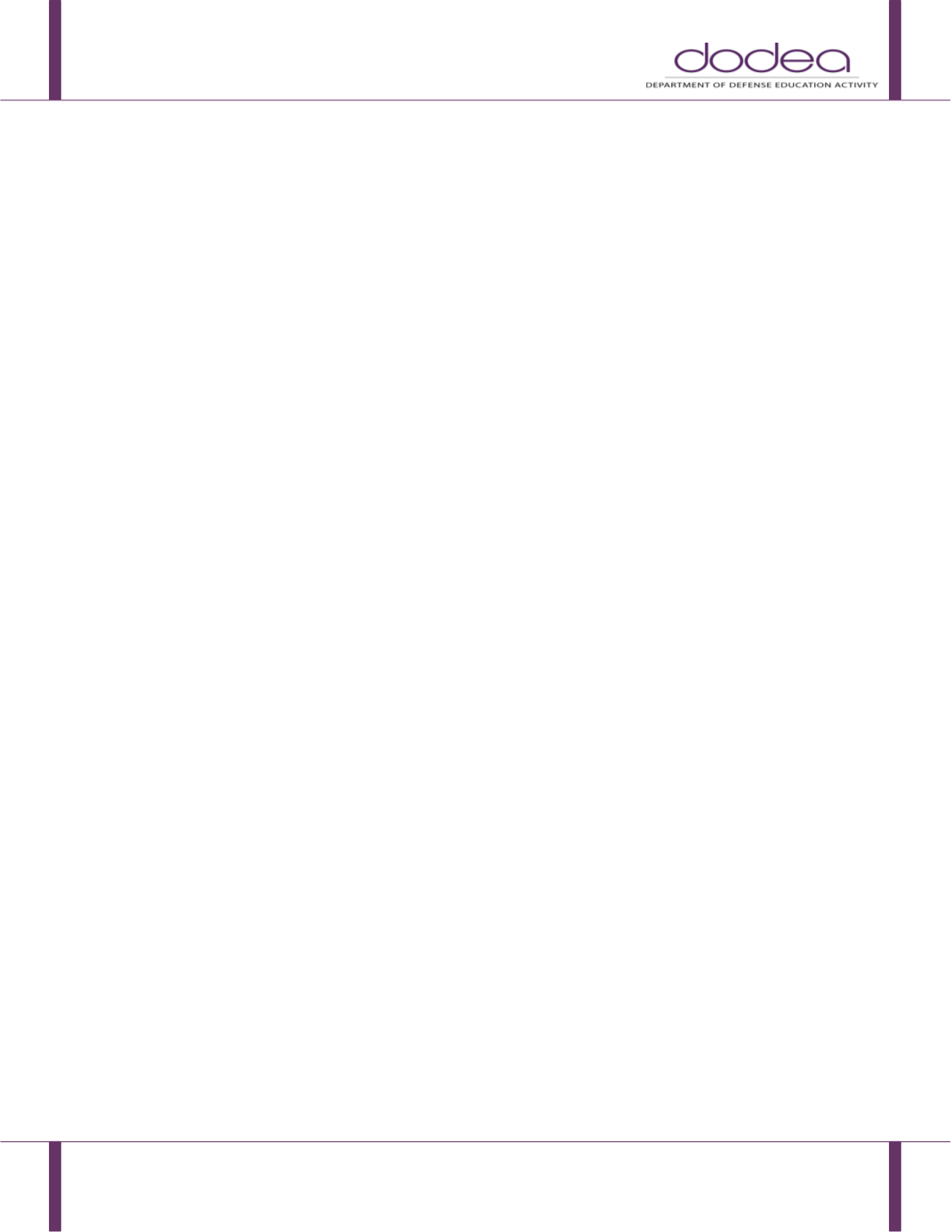

1342.12 Companion
July 12, 2017
Page 182
“Eligible student”
means a student with a disability who reaches the age of majority and to whom the
procedural safeguards and other rights afforded to the parent(s) are transferred.
“Emotional impairment”
(EI) means a condition confirmed by clinical evaluation and diagnosis and that,
over a long period of time and to a marked degree, adversely affects educational performance and
exhibits one or more of the following characteristics: (a). Inability to learn that cannot be explained by
intellectual, sensory, or health factors; (b). Inability to build or maintain satisfactory interpersonal
relationships with peers and teachers; (c). Inappropriate types of behavior or feelings under normal
circumstances; (d). A tendency to develop physical symptoms or fears associated with personal or
school problems; (e). A general pervasive mood of unhappiness or depression. Includes students who
are schizophrenic, but does not include students who are socially maladjusted, unless it is determined
they are emotionally disturbed.
“Equipment”
means machinery, utilities, and built-in equipment, and any necessary enclosures or
structures to house machinery, utilities, or equipment and all other items necessary for the functioning
of a particular facility as a facility for the provision of educational services, including items such as
instructional equipment and necessary furniture, printed, published and audiovisual instructional
materials, telecommunications, sensory, and other technological aids and devices and books,
periodicals, documents, and other related materials.
“Evaluation”
means the method used by a multidisciplinary team to conduct and review the
assessments of the child and other relevant input to determine whether a child has a disability and a
child’s initial and continuing need to receive EIS or special education and related services.
“Extended school year services”
means Special education and related services that are provided to a
child with a disability beyond the normal DoDEA school year, in accordance with the child’s IEP, are at
no cost to the parents, and meet the standards of the DoDEA school system.
“Free appropriate public education”
or
“FAPE”
means special education and related services that:
1)
Are provided at public expense, without charge;
2)
Meet the standards of DoDEA;
3)
Include an appropriate preschool, elementary school, middle school or secondary school
education in DoDEA; and
4)
Are provided in conformity with an individualized education program.
“Functional behavioral assessment”
means a process to determine the underlying cause or functions of
a student’s behavior that impede the learning of the student with a disability or the learning of the
student’s peers. A functional behavioral assessment may include a review of existing data or new testing
data or evaluation as determined by the IEP team (a process for identifying the events that predict and
maintain patterns of problem behavior).
“General curriculum”
means the curriculum adopted by the DoDEA school systems for all children from
preschool through secondary school. To the extent applicable to an individual child with a disability, the
general education curriculum can be used in any educational environment along a continuum of
alternative placements.
“Hearing impairment”
(HI) means an impairment in hearing, whether permanent or fluctuating, that
adversely affects a student’s educational performance, but is not included under the definition of
deafness.


















